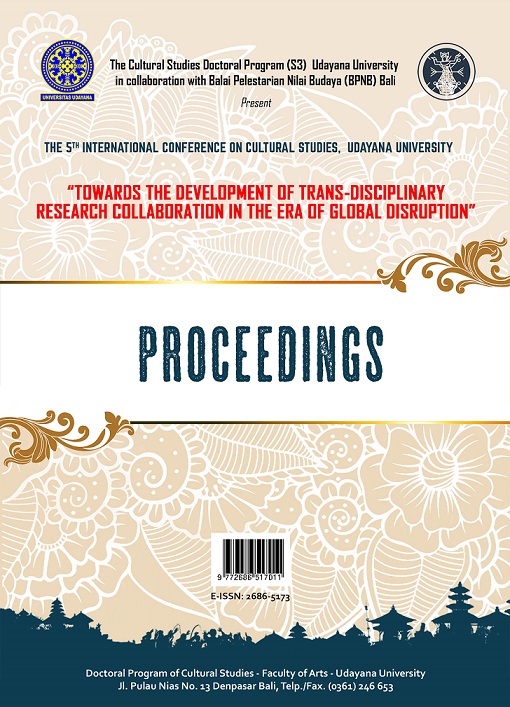MUNANESE WOMEN OF SOUTHEAST SULAWESI IN "KARIA TRADITION"
A Hegemony Practices in Speech Advices
Abstract
The issue of women in strengthening traditions has always been a polemic. The Muna community in Southeast Sulawesi is known as a tradition called "Karia", which is intended for girls who are entering their teens or before marriage. Special burdens are placed on them through advice and ritual. In the context of Cultural Studies, violence can be symbolic by allowing a variety of dominant representations, both in the form of opinions and something that is considered to be true and natural in the mind of a particular person or group. This paper discusses the implicit hegemony in the hierarchy of languages ??and traditions in the Karia tradition lived by Muna women. Bourdieu (1977: p. 192) confirmed the relation of domination in instilling (ideological) values ??which he called symbolic violence. For this reason, this article comprehensively discusses the practice of hegemony as an effort to form the character and social representation of Muna women in the Karia procession, through the perspective of cultural studies involving the power of language and observing social behavior towards the community owner of the tradition
Downloads
References
Harker, Richard, Cheelan Mahar, & Chris Wilkes (ed.). 2009. (Habitus x Modal) + Ranah= Praktik. Yogyakarta: Jala Sutra.
Iman, Wa Ode Nur. 2015. Perempuan Muna: Pola Asuh dalam Karia. Kendari: Settung Publishing.
Rahim, A. Rahman. 2011. Nilai-Nilai Utama Kebudayaan. Yogyakarta: Ombak.
Wirawan, I.B. 2014. Teori-Teori Sosial dalam Tiga Paradigma (Fakta Sosial, Definisi Sosial, & Perilaku Sosial). Jakarta: Prenadamedia Group.





